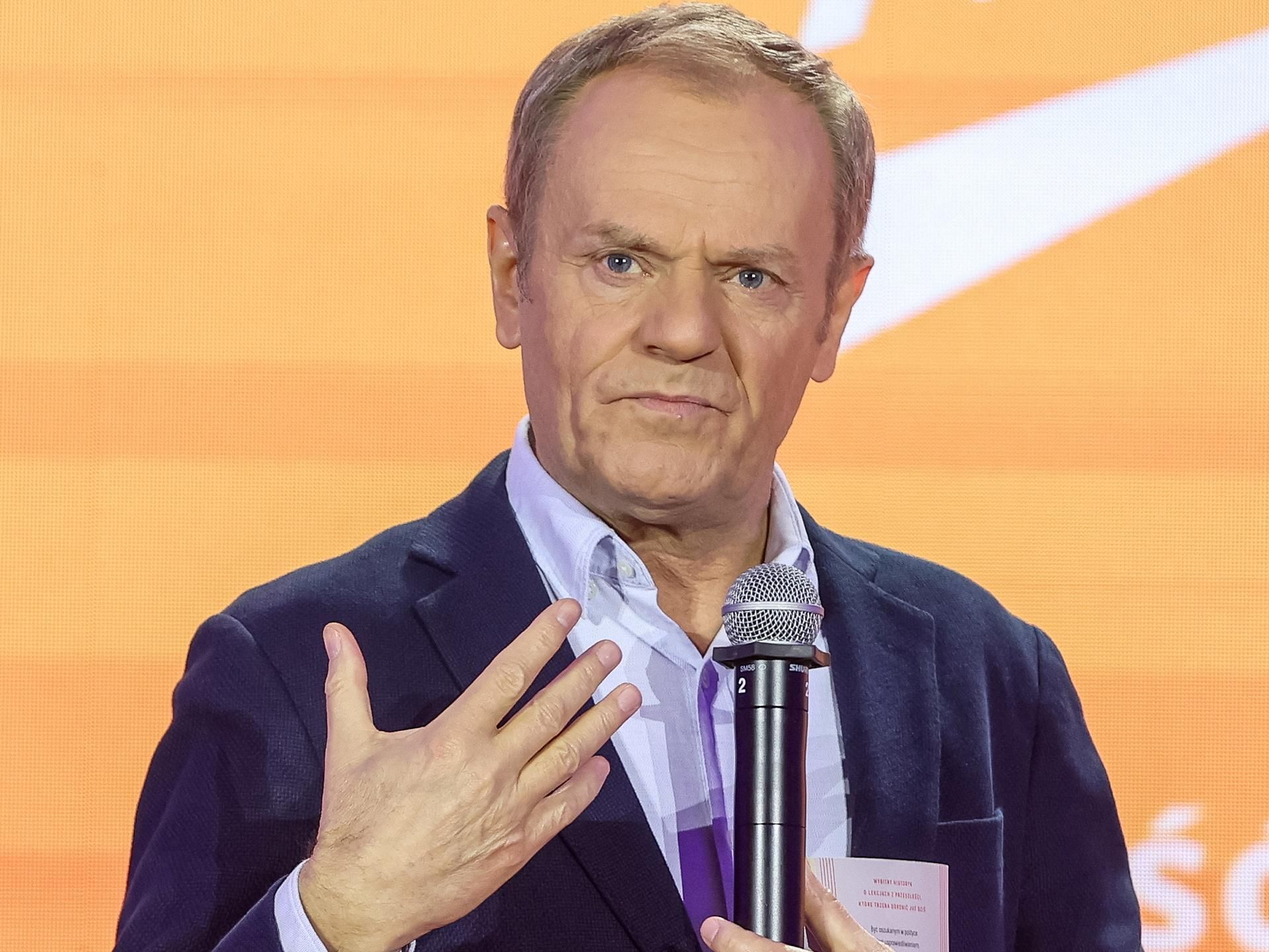
Гуруграм- InterGlobe Aviation, материнская компания IndiGo Airlines (6E), сейчас (по состоянию на апрель 2025 года) является вторым по рыночной капитализации перевозчиком в мире или, можно сказать, 2-й по величине авиакомпанией в мире.
Оценка IndiGo подскочила более чем на миллиард, чтобы опередить United Airlines (UA) и ее ближайшего конкурента Ryanair (FR) в марте 2025 года.
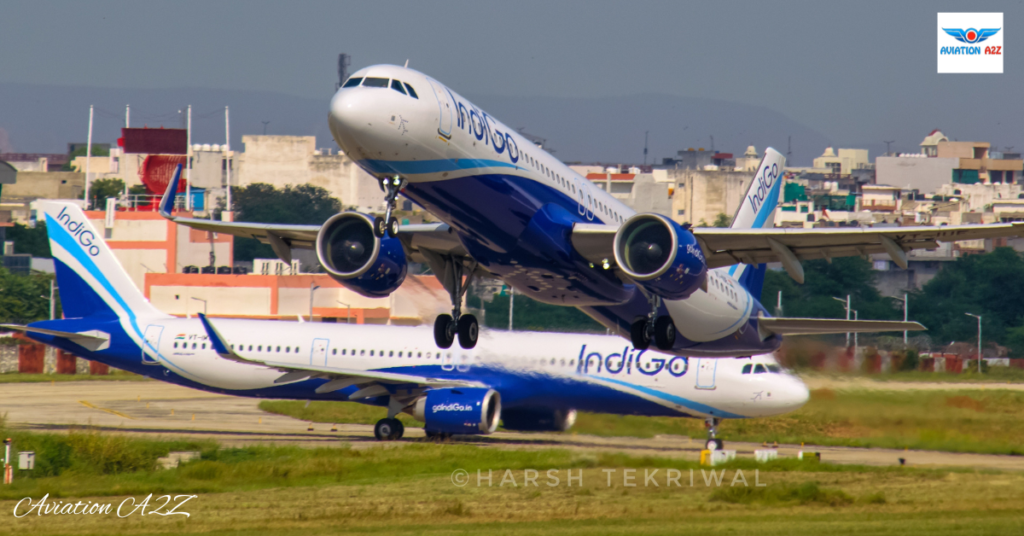 Фото: avgeekwithlens/Harsh Tekriwal
Фото: avgeekwithlens/Harsh TekriwalIndiGo: 2-й самый ценный перевозчик
Рост капитализации IndiGo с 4-го до 2-го места на мировом рынке авиаперевозок обусловлен несколькими ключевыми факторами:
- Сильный внутренний спрос IndiGo доминирует на авиационном рынке Индии, занимая более 60% внутреннего рынка. Растущий спрос на авиаперевозки в стране, подпитываемый растущим средним классом и быстрой урбанизацией, значительно увеличил доходы IndiGo.
- Агрессивное расширение IndiGo расширилась на международном уровне, добавив новые маршруты на Ближнем Востоке и в Юго-Восточной Азии, одновременно увеличивая размер флота с помощью экономичных самолетов Airbus A320neo и A321XLR.
- Последовательная прибыльность Несмотря на проблемы отрасли, IndiGo сохранил прибыльность благодаря экономически эффективным операциям, высокому использованию самолетов и подходу без излишеств.
- Уверенность инвесторов Учитывая, что авиационный рынок Индии готов к долгосрочному росту, инвесторы рассматривают IndiGo как сильную ставку, повышая стоимость акций и увеличивая рыночную капитализацию.
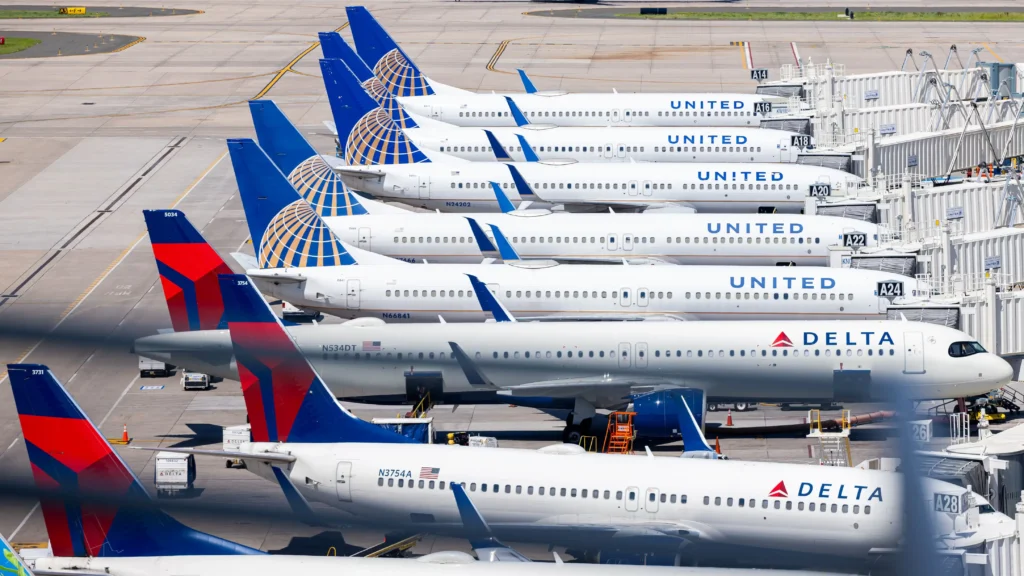 Фото: Аэропорт Денвера
Фото: Аэропорт ДенвераВ этой статье также приводится анализ ведущих авиакомпаний по рыночной капитализации, подчеркивая их стратегии, операции и вклад в авиационный сектор.
10 самых дорогих авиакомпаний
По состоянию на 2 апреля 2025 года, вот список крупнейших авиакомпаний по рыночной капитализации:
По состоянию на 2 апреля 2025 года приведен список крупнейших авиакомпаний по рыночной капитализации в долларах США:
| 1 1 | Delta Air Lines (DAL) | $27,40 млрд. | США |
| 2 2 | InterGlobe Aviation (INDIGO.NS) | $22,71 млрд. | Индия |
| 3 | Ryanair (RYAAY) | $22,70 млрд. | Ирландия |
| 4.4 | United Airlines Holdings (UAL) | $22,32 млрд. | США |
| 5 | Southwest Airlines (LUV) | $18,72 млрд. | США |
| 6.6 | Международные консолидированные авиалинии (BABWF) | $17,33 млрд. | Испания |
| 7. | Air China (601111.SS) | $15,42 млрд. | Китай |
| 8 | Singapore Airlines (C6L.SI) | $14,95 млрд. | Сингапур |
| 9 9 | China Southern Airlines (600029.SS) | $12,71 млрд. | Китай |
| 1010 | Turkish Airlines (THYAO.IS) | $11,29 млрд. | Турция |
Примечание: В эту таблицу включены только публично торгуемые авиакомпании.
Эти рейтинги основаны на данных о рыночной капитализации, полученных от компанийmarketcap.com. Обратите внимание, что рыночная капитализация регулярно колеблется из-за колебаний фондового рынка.
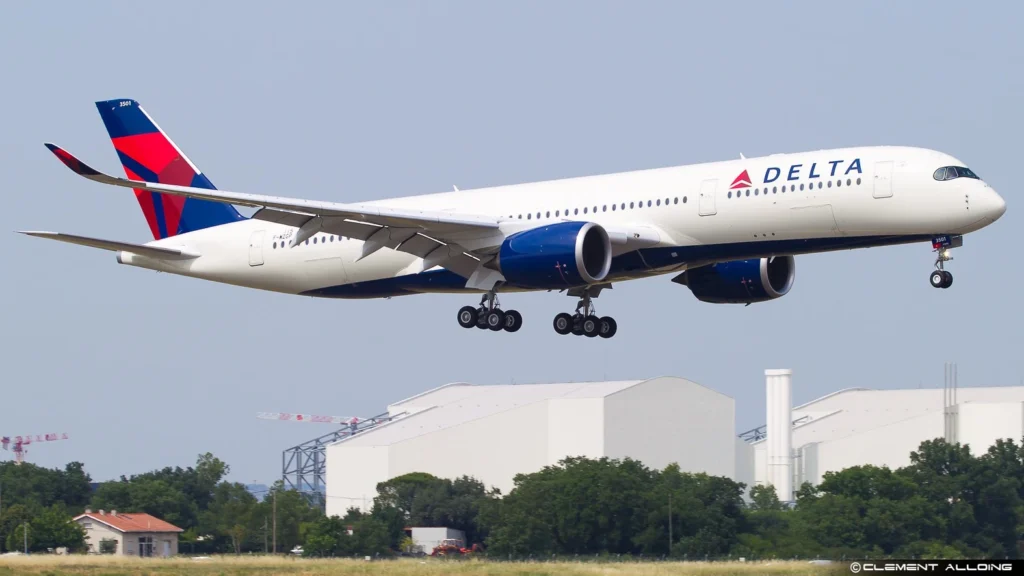 Источник: Clément Alloing
Источник: Clément Alloing1. Delta Air Lines (DAL) - США
Возглавляя список, Delta Air Lines (DL) может похвастаться рыночной капитализацией в 27,40 млрд долларов. Будучи крупным американским перевозчиком, Delta управляет обширной внутренней и международной сетью, подчеркивая обслуживание клиентов и операционную эффективность.
Delta, базирующаяся в Атланте, штат Джорджия, управляет обширной сетью, обслуживающей более 275 направлений в более чем 50 странах.
Авиакомпания сохраняет свое конкурентное преимущество благодаря эксплуатационной надежности и превосходному обслуживанию клиентов, постоянно инвестируя в модернизацию парка и инициативы в области устойчивого развития.
Будучи одним из основателей альянса SkyTeam, Delta предлагает глобальную связь, диверсифицируя доходы за счет корпоративных поездок, грузовых операций и своей программы лояльности SkyMiles.
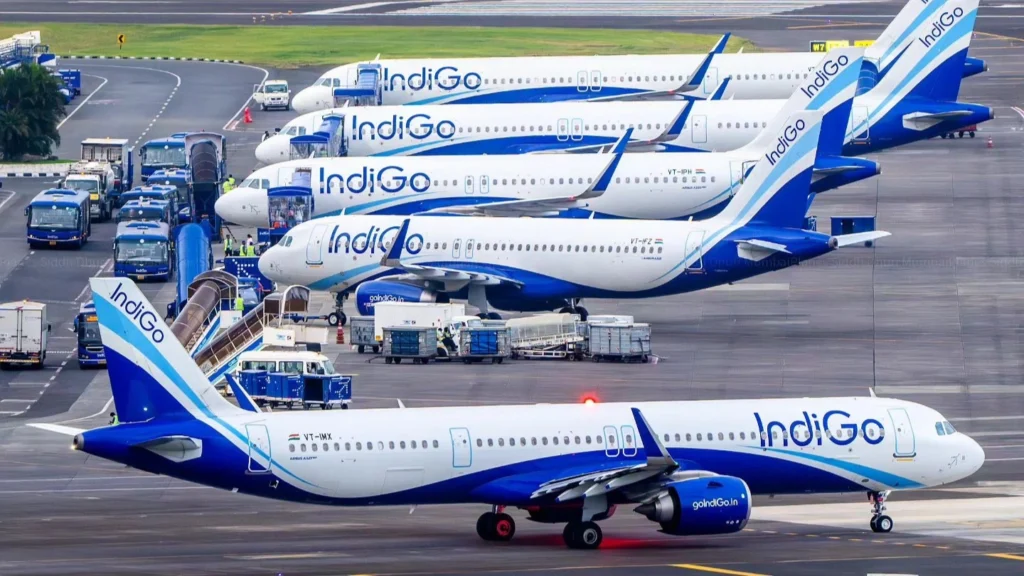 Фото: Сиддх Дхури | МумбаиПланы
Фото: Сиддх Дхури | МумбаиПланы2. InterGlobe Aviation (INDIGO.NS)
Индийская InterGlobe Aviation, работающая под названием IndiGo (6E), занимает вторую позицию с рыночной капитализацией в 22,71 млрд долларов. IndiGo быстро расширила свой флот и маршрутную сеть, став доминирующим игроком на индийском авиационном рынке.
Базирующаяся в Гургаоне, Индия, IndiGo преобразила воздушные перевозки в регионе с помощью своего недорогого подхода без излишеств. Авиакомпания в основном эксплуатирует самолеты семейства Airbus A320, уделяя особое внимание оперативной эффективности, пунктуальности и строгой дисциплине расходов.
IndiGo доминирует на внутреннем рынке Индии, расширяясь на международном уровне, особенно в регионах Ближнего Востока и Юго-Восточной Азии. Клиентоориентированный подход авиакомпании и высокие финансовые показатели делают ее ведущим перевозчиком в Азии.
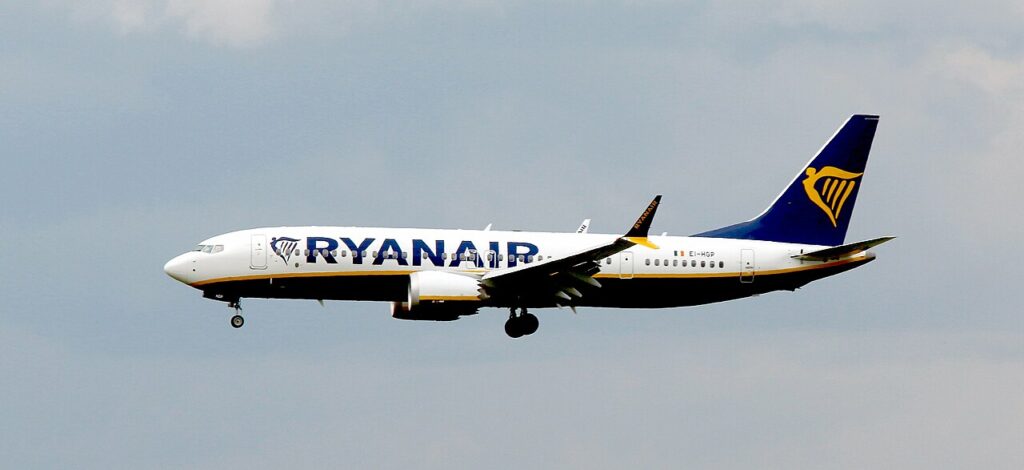 Фото: Стив Найт - https://www.flickr.com/photos/kitmasterbloke/51341704771/, CC BY 2.0, https://commons.wikimedia.org/w/index.php?curid=113415745
Фото: Стив Найт - https://www.flickr.com/photos/kitmasterbloke/51341704771/, CC BY 2.0, https://commons.wikimedia.org/w/index.php?curid=1134157453. Ryanair (RYAAY)
Ирландская Ryanair (FR), стоимость которой составляет 22,70 миллиарда долларов, известна своей бизнес-моделью со сверхнизкими затратами. Авиакомпания достигла значительного роста, сосредоточившись на экономической эффективности и расширении своей маршрутной сети по всей Европе.
Авиакомпания обслуживает более 230 направлений по всей Европе, Северной Африке и Ближнему Востоку. Бизнес-модель Ryanair подчеркивает доступность и эффективность использования самолетов, в первую очередь эксплуатируя самолеты Boeing 737, чтобы максимизировать эксплуатационную эффективность и минимизировать затраты на техническое обслуживание.
Несмотря на критику в отношении политики обслуживания клиентов, Ryanair продолжает привлекать высокий спрос на пассажиров благодаря конкурентным ценам и обширной маршрутной сети.
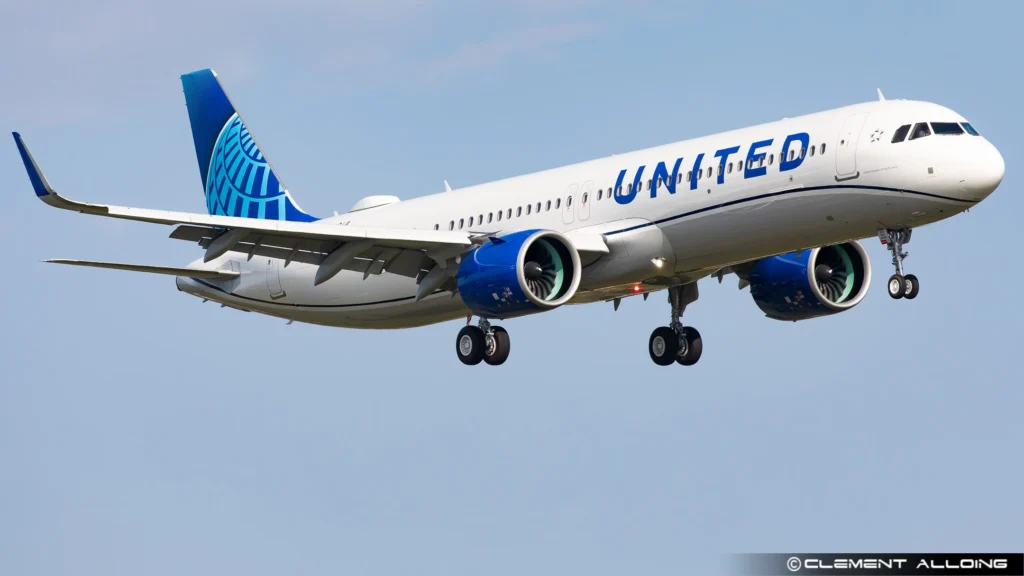 Источник: Clément Alloing
Источник: Clément Alloing4. United Airlines Holdings (UAL)
С рыночной капитализацией в 22,32 миллиарда долларов United Airlines (UA) является крупным американским перевозчиком, предлагающим комплексные внутренние и международные услуги. Авиакомпания фокусируется на повышении качества обслуживания клиентов и расширении своего глобального охвата.
United управляет обширной внутренней и международной маршрутной сетью из своей штаб-квартиры в Чикаго. Авиакомпания поддерживает крупные хабы в Хьюстоне, Денвере и Ньюарке, предлагая глобальные варианты путешествий в качестве ключевого члена Star Alliance.
United получила признание за свои инициативы в области устойчивого развития, включая инвестиции в устойчивое авиационное топливо и самолеты следующего поколения для сокращения выбросов углерода. Программа лояльности MileagePlus продолжает приносить значительный доход и увеличивать удержание клиентов.
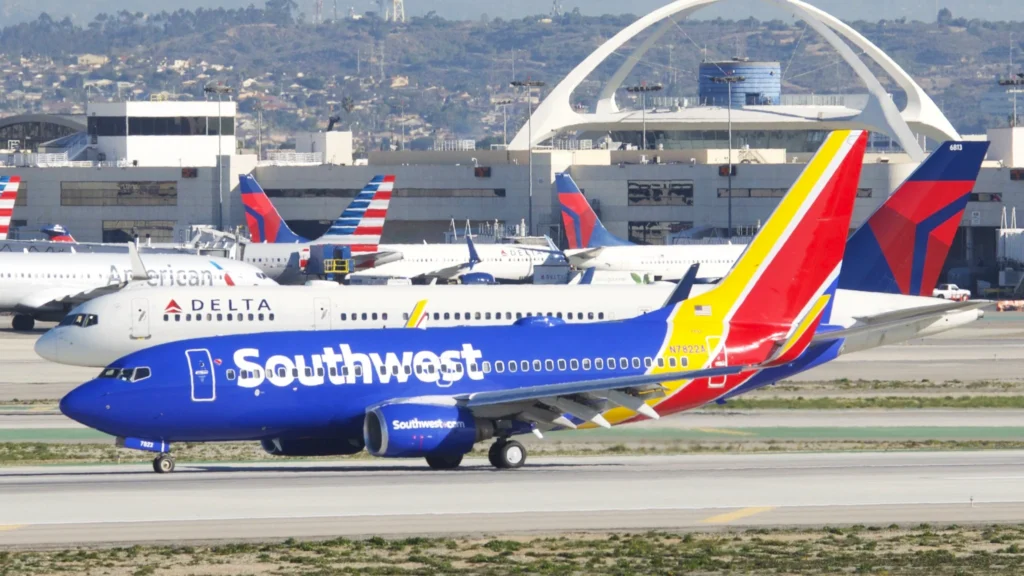 Фото: Aero Icarus | Flickr
Фото: Aero Icarus | Flickr5. Southwest Airlines (LUV)
Southwest Airlines (WN) оценивается в 18,72 миллиарда долларов США и известна своей недорогой моделью и обширной внутренней сетью в США. Авиакомпания подчеркивает операционную эффективность и удовлетворенность клиентов.
Southwest Airlines продолжает свой успех благодаря политике, ориентированной на клиентов, и эффективной работе в штаб-квартире в Далласе, штат Техас. Авиакомпания впервые разработала модель бюджетного перевозчика с маршрутами «точка-точка», быстрыми поворотами и операционной эффективностью.
Юго-Запад эксклюзивно Самолеты Boeing 737 оптимизируют расходы на техническое обслуживание и обучение. Отличительная политика авиакомпании, в том числе бесплатный зарегистрированный багаж и отсутствие изменений, создали лояльную клиентскую базу.
Сильное финансовое положение Юго-Запада и стратегическая практика хеджирования топлива помогли ему эффективно справляться с экономическими проблемами.
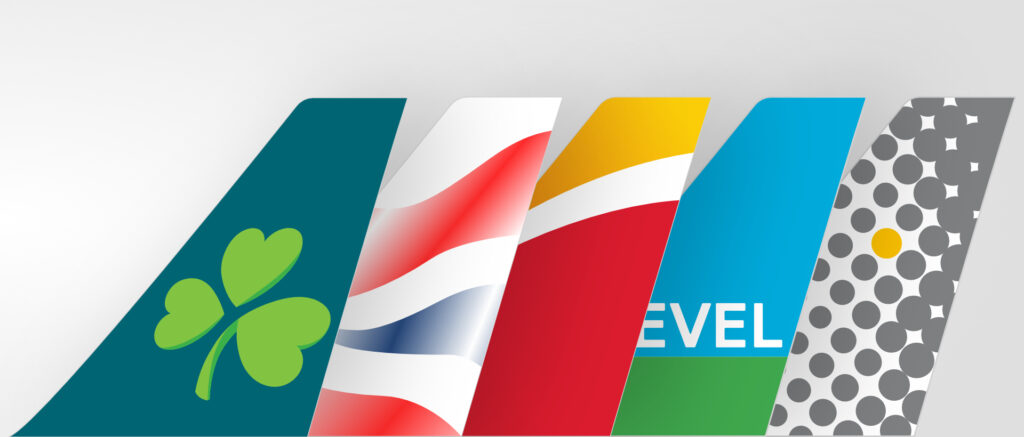 Фото: Banbam1029, CC BY-SA 4.0, https://commons.wikimedia.org/w/index.php?curid=91589585
Фото: Banbam1029, CC BY-SA 4.0, https://commons.wikimedia.org/w/index.php?curid=915895856. International Consolidated Airlines (BABWF)
Базирующаяся в Испании International Consolidated Airlines Group (IAG) имеет рыночную капитализацию в 17,33 миллиарда долларов. IAG является материнской компанией нескольких крупных авиакомпаний, в том числе British Airways и Iberia, работающих в разнообразной сети по всей Европе и за ее пределами.
IAG, базирующаяся в Лондоне, предлагает как полный спектр услуг, так и недорогие операции в своем портфеле авиакомпаний. British Airways обслуживает премиальные международные маршруты с сильным трансатлантическим присутствием, в то время как Iberia фокусируется на испанском и латиноамериканском рынках.
Стратегия группы использует синергию между авиакомпаниями, сохраняя при этом отличительную идентичность бренда. IAG продолжает инвестировать значительные средства в программы модернизации флота и устойчивого развития, включая инициативы по устойчивому авиационному топливу и сокращению выбросов углерода.
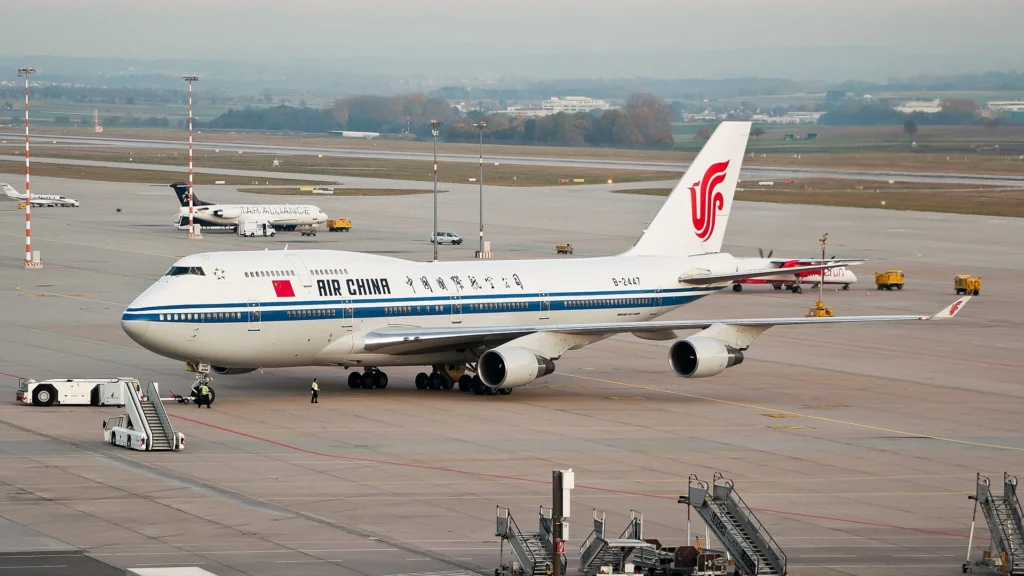 Фото: Джулиан Херцог, CC BY 4.0, https://commons.wikimedia.org/w/index.php?curid=17243843
Фото: Джулиан Херцог, CC BY 4.0, https://commons.wikimedia.org/w/index.php?curid=172438437. Air China (601111.SS)
Китайский авиаперевозчик Air China (CA) имеет рыночную капитализацию в 15,42 миллиарда долларов. Авиакомпания управляет обширными внутренними и международными маршрутами, играя ключевую роль в соединении Китая с миром.
Авиакомпания со штаб-квартирой в Пекине управляет обширными внутренними и международными сетями, соединяющими Китай с Северной Америкой, Европой и Азией. Как член Star Alliance, Air China пользуется возможностями глобального партнерства.
Компания управляет разнообразным флотом, состоящим из самолетов Airbus, Boeing и COMAC, продолжая усилия по модернизации. Air China продолжает расширять свои дальнемагистральные перевозки и расширять премиальные услуги для привлечения деловых путешественников.
 Фото: Utkarsh Thakkar (Vimanspotter)
Фото: Utkarsh Thakkar (Vimanspotter)8. Singapore Airlines (C6L.SI)
Имея рыночную капитализацию в 14,95 миллиарда долларов, Singapore Airlines (SQ) известна своими исключительными услугами и премиальными предложениями. Авиакомпания управляет современным флотом и имеет сильное присутствие в дальних международных поездках.
Singapore Airlines уделяет особое внимание инновациям, опыту клиентов и устойчивому развитию за счет инвестиций в самолеты следующего поколения и инициатив по устойчивому авиационному топливу для снижения воздействия на окружающую среду.
Программа лояльности авиакомпании KrisFlyer и партнерские отношения Star Alliance расширяют возможности глобальной связи и удержания клиентов.
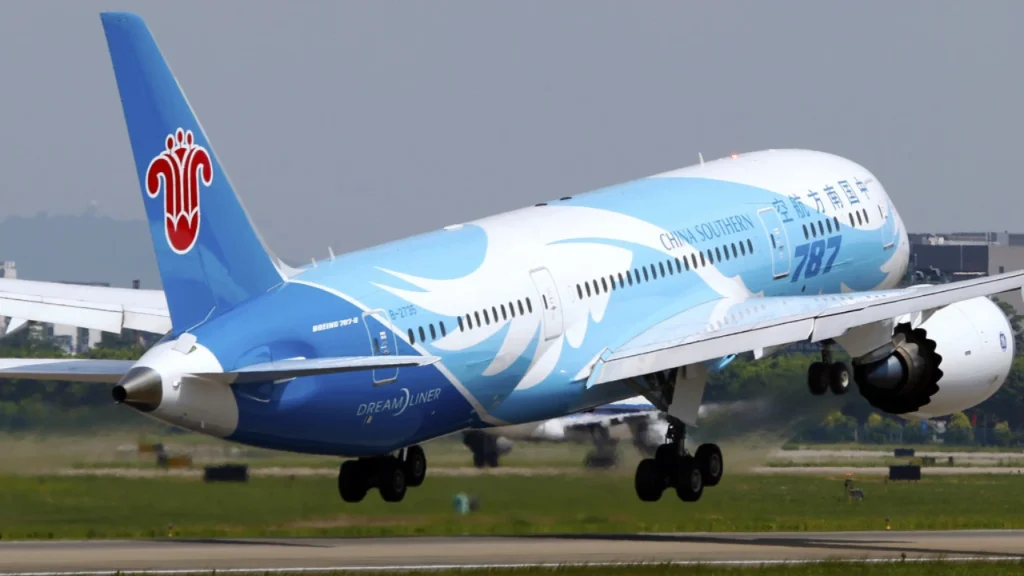 Фото: byeangel | Flickr
Фото: byeangel | Flickr9. China Southern Airlines (600029.SS)
Авиакомпания China Southern Airlines (CZ) стоимостью 12,71 млрд долларов является одним из крупнейших перевозчиков Китая по размеру флота и объему пассажиров. Авиакомпания управляет обширной внутренней и международной сетью, уделяя особое внимание расширению своего глобального присутствия.
Базирующаяся в Гуанчжоу авиакомпания поддерживает обширные внутренние и международные сети, соединяющие пассажиров по всей Азии, Европе, Северной Америке и Океании. Будучи членом альянса SkyTeam, China Southern использует глобальные партнерские отношения для расширения своего охвата.
Компания фокусируется на модернизации флота и улучшении качества обслуживания для укрепления своих конкурентных позиций на мировых авиационных рынках.
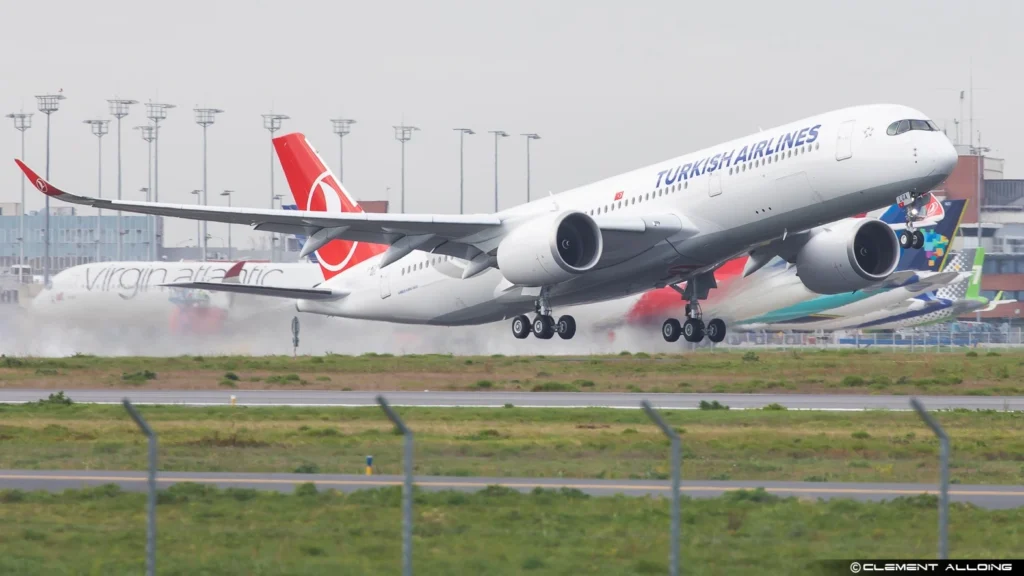 Источник: Clément Alloing
Источник: Clément Alloing10. Turkish Airlines (THYAO.IS)
Завершая топ-10, Turkish Airlines (TK) имеет рыночную капитализацию в 11,29 млрд долларов. Используя свой стратегический центр в Стамбуле, авиакомпания соединяет пассажиров по всей Европе, Азии и Африке, предлагая обширную маршрутную сеть и высококачественное обслуживание.
Работая из Стамбула, авиакомпания поддерживает одну из самых обширных сетей в мире с более чем 340 направлениями на шести континентах. Аэропорт Стамбула служит стратегическим центром, обеспечивающим эффективные связи между Европой, Азией, Африкой и Америкой.
Turkish Airlines заслужила признание за свои премиальные сервисные предложения, в том числе отмеченные наградами услуги бортового питания и проживание бизнес-класса, дополненные программой лояльности Miles & Smiles.
Авиакомпания управляет современным флотом, состоящим в основном из самолетов Boeing и Airbus, продолжая инвестировать в экономичные модели для повышения устойчивости.
Будучи членом Star Alliance, Turkish Airlines укрепляет свои глобальные связи через партнерские отношения, одновременно проводя агрессивную экспансию с новыми дальнемагистральными маршрутами и уделяя особое внимание цифровым инновациям и улучшению качества обслуживания клиентов.
Оставайтесь с нами. Следуйте за нами в социальных сетях для последних обновлений.
Присоединяйтесь к нам в Telegram Group для последних обновлений авиации. Следуйте за нами в Google News
50 крупнейших авиакомпаний мира по годовым доходам
Пост IndiGo Beats United и Ryanair станет 2-й самой дорогой авиакомпанией в 2025 году впервые появился на Aviation A2Z.

